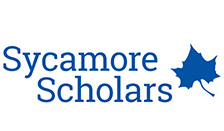Abstract
Context: Dry needling refers to the practice of inserting monofilament needles into the skin without injecting any liquids. Many of the principles of needle insertion are similar to those used in acupuncture. Previous literature has suggested that acupuncture may be a potential adjunct treatment for nasal congestion. However, there are not any studies examining the efficacy of dry needling to alleviate nasal congestion. Therefore, the purpose of this case series was to present the cases of four patients suffering from nasal congestion who experienced immediate relief following treatment with dry needling. Methods: Four male patients (23.25 ± 2.36 years, 182.25 cm ± 8.39, 92.99 kg ± 15.61) were recruited and consented to participate in this study. All patients were afebrile and without other symptoms of illness, except for nasal congestion. None of the patients reported using any medications besides over-the-counter pseudoephedrine. Prior to treatment, all patients completed the Congestion Quantifier 7 (CQ7). The treatment site was then cleaned using an isopropyl alcohol prep pad, and the patients were instructed to use hand signals to answer questions once needles were inserted. The dry needling treatment consisted of inserting 1.27 cm needles bilaterally above the orbital rim, along the zygomatic arch, and into the nasal fold for 10-minutes. Within 2-minutes of completion of the treatment all patients were asked to complete the CQ7 a second time. Data analysis was performed using a paired samples t-test to determine statistical significance of differences in CQ7 scores before and after treatment. Results: Following one dry needling treatment, the patients experienced a significant decrease in congestion symptom severity (3.00 ± 1.19 to 1.61 ± 0.09, p < 0.01). Patient’s average a 46.3% decrease in symptoms. None of the participants reported any adverse effects as a result of the dry needling treatment. Conclusions: These findings demonstrated that in otherwise healthy patients, dry needling significantly decreased symptoms of nasal congestion. While dry needling does not treat the root cause of nasal congestion, it may warrant consideration as a non-medicinal treatment for congestion. Clinicians must use discretion when choosing a treatment option if a patient will be performing physical activity afterwards.
Recommended Citation
Gallegos, D M.; Warner, B J.; Peebles, R; and Cage, S A.
(2022)
"Effect of Dry Needling on Sinus Congestion in Otherwise Healthy Adults,"
Clinical Practice in Athletic Training: Vol. 5:
Iss.
3, Article 6.
Available at:
https://scholars.indianastate.edu/clinat/vol5/iss3/6

